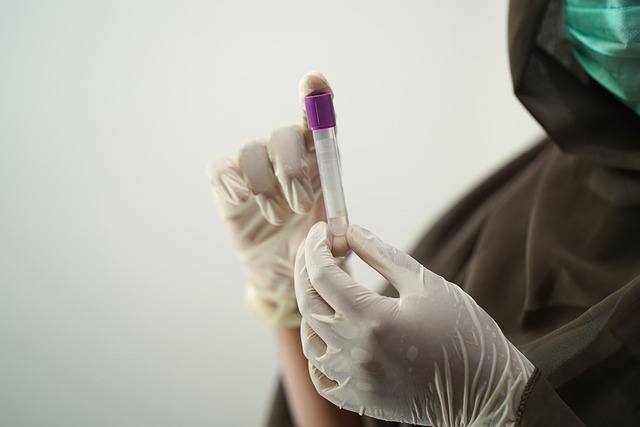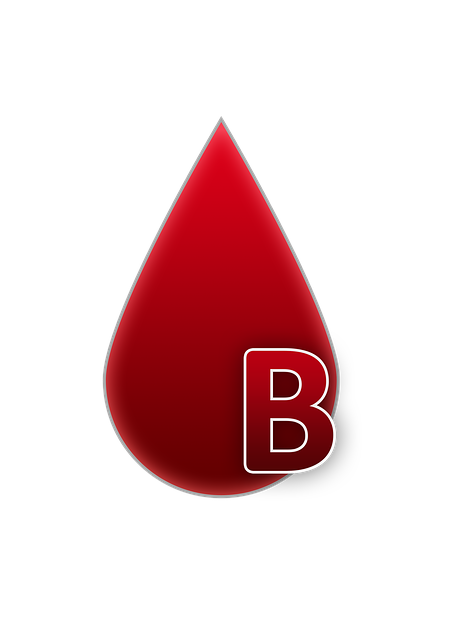The General Health Blood Test in the UK is a key medical diagnostic tool that comprehensively evaluates various bodily functions and systems. It encompasses a Full Blood Count to detect cell anomalies and deficiencies in iron, folate, and vitamin B12, Liver Function Tests for liver health assessment, electrolyte measurements for heart, kidney, and nerve function monitoring, Thyroid Function Tests for hormonal balance, blood glucose tests for diabetes surveillance, and lipid profile tests for understanding cardiovascular risks. This test is widely accessible through both NHS services and private healthcare providers in the UK, allowing individuals to proactively manage their health by identifying potential issues early on. It's crucial to organize this test with a qualified healthcare professional before a home wellness check, adhering to fasting guidelines for accurate results. After the test, follow up with your healthcare provider to discuss the results and receive personalized advice. Regular screenings, coupled with ongoing medical guidance post-test, are essential for effective health management in the UK.
navigating personal health has become increasingly manageable with advancements in home wellness checks. In the UK, a General Health Blood Test offers a comprehensive glimpse into one’s well-being, providing insights into various health markers. This article guides you through understanding what this test entails, preparing for it effectively, and interpreting the results to inform your personal health management strategy. Whether you seek peace of mind or proactive healthcare management, home wellness checks are a vital tool in maintaining your health.
- Understanding the Components of a General Health Blood Test in the UK
- Preparing for Your Home Wellness Check: A Step-by-Step Guide
- Post-Test: Interpreting Your Results and Next Steps in Personal Health Management
Understanding the Components of a General Health Blood Test in the UK

A General Health Blood Test in the UK serves as a comprehensive health check, offering insights into various bodily systems and functions. This test typically includes a full blood count (FBC), which measures the levels of red blood cells, white blood cells, hemoglobin, hematocrit, platelets, and mean corpuscular volume. It also assesses key components such as iron, folate, and vitamin B12 to detect deficiencies that could affect energy levels and cognitive function. Additionally, the test may encompass liver function tests (LFTs), which evaluate liver health by measuring enzymes like alanine aminotransferase (ALT) and aspartate aminotransferase (AST), as well as proteins such as albumin and globulin. Electrolytes, including sodium, potassium, chloride, bicarbonate, calcium, and magnesium, are also often included to ensure electrolyte balance, which is crucial for heart, kidney, and nerve function. Thyroid function tests measuring thyroid-stimulating hormone (TSH), triiodothyronine (T3), and thyroxine (T4) levels are integral to assessing the thyroid’s health. Blood glucose levels can be checked to monitor for conditions such as diabetes, while lipid profile tests measure cholesterol types like LDL, HDL, and triglycerides to understand cardiovascular risk factors. Understanding the results of a General Health Blood Test in the UK is essential for individuals to proactively manage their health and address any potential issues early on. This test is readily available through NHS services or private healthcare providers across the country, ensuring that it’s accessible for those seeking a thorough understanding of their overall health status.
Preparing for Your Home Wellness Check: A Step-by-Step Guide

When preparing for a home wellness check, it’s crucial to ensure that you have all necessary materials and information on hand. To begin, contact your healthcare provider to arrange for a home visit from a qualified professional who can perform general health blood tests. These tests are essential for monitoring your overall health status by measuring various indicators such as cholesterol levels, glucose levels, liver function, kidney function, and more. Before the appointment, fast for the required period as instructed by your healthcare provider, typically between 8 to 12 hours, to guarantee accurate results. On the day of the check-up, wear comfortable clothing with accessible veins to facilitate blood sampling. Prepare a list of medications you are currently taking and any medical history that may influence your test results. Ensure the testing area is clean and well-lit, and have a table or flat surface ready for the collection materials. It’s also wise to keep the test kit within reach if using a home testing kit, as per the manufacturer’s instructions. After the procedure, ensure you understand how to handle and store your blood samples if required, following the guidelines provided by your healthcare provider. Lastly, be ready to provide a urine sample for additional tests if necessary, and maintain open communication with the professional conducting the wellness check to address any concerns or questions you may have about your health and the test results. Remember to follow up with your healthcare provider to discuss the results of your general health blood test in detail, ensuring you take proactive steps towards maintaining or improving your health based on those findings.
Post-Test: Interpreting Your Results and Next Steps in Personal Health Management

When you’ve completed a general health blood test in the UK, interpreting your results is a critical step in understanding your overall wellness and making informed decisions about your health management. Your test will measure various biomarkers that provide insights into your body’s functioning. For instance, a complete blood count (CBC) can indicate your immune system’s status, while lipid profiles can reveal your risk for heart disease. It’s essential to consult with your healthcare provider for a comprehensive explanation of your results, as they can offer context-specific guidance based on your medical history and personal health goals.
Post-test interpretation is not merely about identifying abnormalities; it’s about understanding the trends and patterns in your biomarkers over time. This continuous monitoring allows for proactive health management, where lifestyle adjustments and preventative measures can be tailored to your unique needs. For example, if your cholesterol levels are elevated, your doctor might recommend dietary changes or exercise routines to manage this risk factor. Similarly, if blood sugar readings indicate pre-diabetic conditions, dietary modifications and increased physical activity could be advised. Regular screenings, along with a collaborative approach with healthcare professionals, form the cornerstone of effective personal health management post-general health blood test in the UK.
In conclusion, home wellness checks, including comprehensive general health blood tests available in the UK, offer a convenient and accessible means for individuals to monitor their health. By following a clear step-by-step guide for preparation and understanding how to interpret results post-test, one can effectively manage personal health concerns and make informed decisions about their well-being. Regular monitoring through these tests is key to early detection of potential health issues, allowing for timely intervention and maintenance of optimal health. For those interested in a general health blood test UK, it is advisable to consult healthcare professionals to tailor the tests to individual needs, ensuring a comprehensive understanding of one’s health status from the comfort of their own home.
